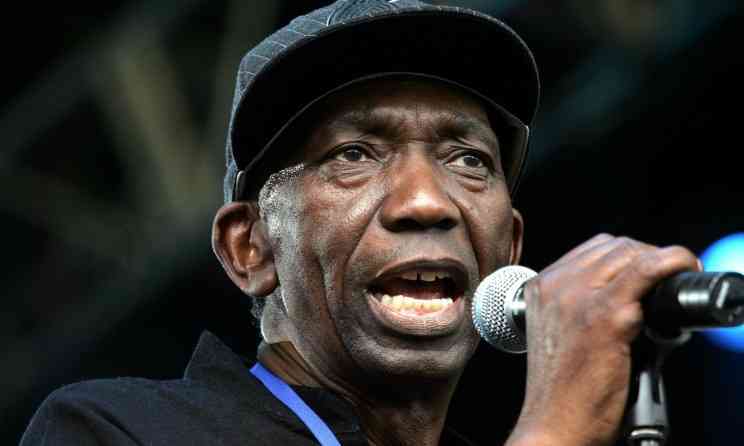
When Three Sevens Clash is a love letter to an icon, a praise to performance, an ode to an era and homage to memory, a collection of twelve essays, written with such mastery and careful detail that exceeds even the slightest hint of impropriety — the central essays written by Farai Mudzingwa, Brian Chikwava, and Musaemura Zimunya are a celebration of the life and work of Thomas ‘Mukanya’ Mapfumo—the godfather of Chimurenga music known for his distinctive voice and slow moving style with a slight hint of time-tested swagger— When Three Sevens Clash delivers so much more, Geraldine Mukumbi’s essay deals with the issues of displacement and memory; Tony Namate’s sketch is a peace offering to the bustling literary culture of the eighties; and Tawanda Mudzonga ties down the intricate knots of what it means to be Zimbabwean outside the closed Shona prism.
The book is a clash of ideas, music, history, hope, and promises.
One silver lining in the case of human growth and progress has always been the case of beginnings.
Beginnings central to discovery—myths, legends, fairy tales, origins, initiations, rites of passage, overtures, social and cultural milieus—beginnings have been markers of change and shifts in the physical, psychological, and metaphysical—and a constant preoccupation of philosophers, social and cultural theorists, historians and anthropologists, and any other students of the human condition.
One self-defeating question being: when and where does a beginning occur?
If applied to persons, does a beginning start with the birth of an individual or their death, or perhaps it starts with a turning point somewhere in someone’s timeline, or maybe it's a change inspired by a radical shift within and around society?
In the case of Thomas Mapfumo, it’s one and all, the genesis of Thomas Mapfumo and his gradual initiation into a legend starts at Mhangura copper mine with the Hallelujah Chicken Run Band, a tongue-in-cheek band name, ‘whose jocular name came from the fact that when its members were not rehearsing or playing, they were required to look after farm chickens’.
On page seventy-eight of ‘When Three Sevens Clash’ is an image of the ‘Take One’ album, which features the young Mapfumo with a bare torso, adorning a raffia skirt, holding a microphone in one hand and what appears to be a Gano (axe) in the other, a signal to the beginning of a much greater coming.
In the foreword of When Three Sevens Clash, written by writer and critic Percy Zvomuya, he recounts the day when the veteran percussionist Lancelot Mapfumo was laid to rest at the Warren Hills Cemetery, Harare, and his subsequent conversation with Musaemura Zimunya, who was also in attendance.
Zimunya bemoans ‘the retreat of the spirit medium’. I was instantly reminded of the 1983 documentary the House of Hunger directed by Chris Austin in which Dambudzo Marechera said, ‘I don't want to walk about wearing my skeleton on the outside; I'd like to show my flesh for once, and if Zimbabweans are my flesh and my people, that's what I’m trying to get back to.'
Of course, Marechera was referring to the isolation he had felt while exiled in England. Having been detached for so long from his country of birth with no contact with his relatives for eight years, he felt the nakedness of isolation. There begins another genesis for Marechera after the House of Hunger. But the opposite is true for Thomas Mapfumo; his genesis starts with Hallelujah Chicken Run Band, with the Gano, the incorporation of the mbira instrument into his music, a piece offering to home, history, and heritage the back rock of Chimurenga music.
The journey has begun again for Thomas Mapfumo; his music sees a change; he refines his earlier influences from rock n’ roll and soul; he looks back and incorporates the classical Zimbabwean instrument mbira into his performance.
At that moment, the spirit medium is being recalled; he joins, or much rather, reconnects with his country’s centuries-old tradition of praise. Mapfumo’s coming of age can be likened to that of the godfather of Afrobeat Fela Aníkúlápó Kuti, who began his journey earlier.
From the other half of the continent, in the 1970s Kuti sets up a nightclub in the Empire Hotel, later known as the Afrika Shrine, where he performed regularly and officiated at personalised Yoruba ceremonies in honor of his ancestors.
Kuti then decides to sing in Pidgin English so that individuals all over Africa can enjoy his music where the local languages they speak are diverse and numerous. Similarly, both maestros fall out with their authoritarian regimes; Fela is arrested and detained for a while, and Mapfumo, on the other hand, is exiled for much of his working life as a musician. The revolution starts eating its own children.
No single musician in Zimbabwe’s musical history holds such notoriety as Thomas Tafirenyika Mapfumo—he is the complete embodiment of the annica, ‘the man, the myth, the legend’. The collection ‘When Three Sevens Clash’ is an attempt to capture the life and the work that is Thomas Mapfumo; his ascension into stardom is intricately tied with Zimbabwe’s history, from the struggles with colonialism under Ian Smith to independence and eventually its aftermath.
His career arch vividly and in some cases faintly captures the hopes, promises, and dreams—achieved and deferred.
Inside are twelve compact essays written with such mastery, depth, and passion. In the opening essay, The Seven Miles Hotel, written by Farai Mudzingwa, the famed author of the long short story Green Shadows in The Kiya Kiya Republic, traces back the roots of Mapfumo’s performance at the Seven Miles Hotel, where he assumed the role almost similar to a musician in residence.
Mudzingwa also uncovers a jar of curious historical facts: the Seven Miles Hotel happens to be one of the first black-owned hotels in then Rhodesia; the presence of Mapfumo and other bands such as The Real Sounds of Africa popularised the hotel to a growing population of African patrons.
In the Beaters in Rhodesia, Atiyah Khan documents the formative years of Harari, one of South Africa’s most loved bands, and how little is known about the role (Zimbabwe then) Rhodesia played in the band’s popularity.
What might not be apparent to the reader is the importance of archives and historiographies underscored, although not implicitly stated, archives play an important role in the preservation of memory. At one point, I am reminded of Buddy Bolden, a concert player from New Orleans who built his band by learning how to mix instruments from 1900 to 1906. was the King of a new sound, but because no recorded sounding of Buddy Bolden exists the man is nothing more than a myth a faded memory.
When Three Sevens Clash is an important book, it is more than just love letters written to memory and an icon—it is a miniature museum that can be carried in a purse or a bag, highly charged and personalized, accessible at any time.
About reviewer
Nyashadzashe Chikumbu is a critic, editor and writer. He was previously the editorial director of Mystery Publishers, Kenya.
Are you a book reviewer?
khumbulani@heartandsoul.co.zw










